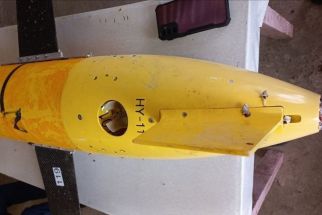Students bear with thermal scanning, passport checks
MANILA, Philippines – Long lines at school entrances, isolation rooms, anti-flu videos, thermal scanning by guards with face masks are some of the features at colleges and universities that started classes yesterday.
Colleges and universities implemented their own precautionary measures against the Influenza A(H1N1) virus as they ushered in the new school year.
The University of the East Manila and Caloocan campuses, and Centro Escolar University in Manila were among the schools that implemented mandatory thermal scanning of students coming to school.
De La Salle University (DLSU) in Manila gave away free bottles of alcohol to all students walking into its campus.
Miriam College in Quezon City has set up an isolation room for students suspected of having the virus, while the University of Sto. Tomas in Manila gave away cardboard fans printed with guidelines on how to prevent infection.
Mapua Institute of Technology-Makati campus suspended classes until June 25 when four cases of suspected A(H1N1) infection were reported.
Instead of the sex videos that are all the rage these days, Ateneo high school in Quezon City reportedly showed swine flu videos, and suspended classes for a week, or until June 22.
Aside from the mandatory thermal scanning, UE is also checking passports of all students to determine foreign travel in the past months.
Foreign and Filipino students found to have recently traveled abroad will be forced to undergo self-quarantine for 10 days.
The said measures come on top of the advisories and information materials on the virus posted throughout the campuses.
Members of the UE community with body temperatures higher than 37.5 °C, as well as those experiencing flu-like symptoms, such as fever, headache, fatigue, muscle or joint pains, lack of appetite, runny nose, sore throat and cough were not allowed to enter the campuses.
They were advised to seek medical attention and undergo self-quarantine for seven days after the onset of illness or at least 24 hours after the symptoms have resolved.
Those exposed to persons with probable or confirmed case of Influenza A(H1N1) are also required to self-quarantine.
Edith Romero, marketing coordinator of the UE system which includes UE Manila, UE Caloocan and the UE Ramon Magsaysay Memorial Medical Center in Quezon City, said long queues formed at their school gates, especially during peak hours when most of the classes opened in the morning and in the early afternoon.
Despite the long lines caused by the mandatory thermal scanning of students, Romero said that they had a successful opening with no undue worry or panic.
Romero said that they will also address the problem of long queues at the school gates through some remedial measures to be implemented today.
He said they did not encounter any problem in conducting the mandatory thermal scanning at the entrance.
New thermal scanners
Meanwhile, the Manila International Airport Authority (MIAA) is acquiring 10 new thermal scanners to intensify its exit screening of all outbound passengers in order to cut down on the exportation of the deadly virus.
MIAA general manager Alfonso Cusi said the new thermal scanners would be procured within the week or next week. He said these scanners would be placed at the departure gates of the three major international airports in Metro Manila.
“We are currently procuring 10 new thermal scanners. Hopefully within this week we can complete the thermal scanners at the entire airport,” Cusi told reporters at the Manila Hotel.
Cusi said a thermal scanner costs around P1.2 to P2 million.
“We have the money to buy that. The 10 will be sufficient,” he said.
He said his people started positioning thermal scanners for outbound passengers “but we are not yet totally scanning (outbound passengers) because we are short of scanners.”
He could not say how many thermal scanners are currently installed at the airports in Metro Manila but said the airports are “well-equipped to address the needs of inbound passengers.”
“The new thermal scanners are not only for the outbound passengers… anybody who would enter the airport would be thermally scanned,” he said.
Cusi also called on all domestic and international airports in other parts of the country to acquire thermal scanners to prevent the spread of the virus. – With Helen Flores
- Latest
- Trending






























